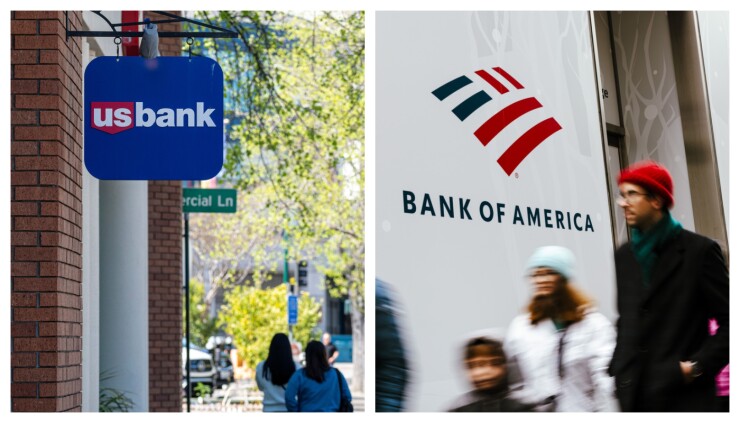
The suits are part of a wave of recently filed cases that will likely help establish the scope of corporate liability under California's so-called "Right to Gripe" law. The goal of the law is to protect consumers' ability to complain online about their experiences with specific companies without the threat of retribution.
In recent months, plaintiffs' lawyers have filed suits alleging that various companies — the list includes not only BofA and U.S. Bank, but also Amazon, Mastercard and United Parcel Service — violated the law.
The California law was signed by then-Gov. Jerry Brown in 2014 and took effect the following January. Nine years later, there is still not a lot of relevant case law, said Andrew Bluth, one of the plaintiffs' lawyers who is spearheading the lawsuits. "I don't think it's been widely tested yet," he said.
The suits against BofA and U.S. Bank were both filed in state court last November, but they have since been removed to federal court. The plaintiffs in both cases are seeking class-action status.
In the suit brought against Bank of America, the complaint cites language from
Bluth, a partner at the law firm Singleton Schreiber, argued that the provision prevents BofA customers from making statements that in the bank's determination may cause reputational harm. "That's exactly what the law is designed to protect," he said.
But earlier this month, Bank of America filed a motion to dismiss the suit, arguing that the bank's terms of service do not prevent customers from making negative statements about BofA. The clause identified by the plaintiffs, the bank says, bars mobile-banking users from engaging in brand-damaging or illegal conduct, but it does not restrict speech.
BofA reserves the right to suspend or terminate users when they are determined to have violated the terms in question.
The relevant portion of the bank's Online Banking Service Agreement relates to customers' use of the Zelle money-transfer service, BofA said. The agreement states that "illegal or brand damaging activities" include but are not limited to: firearms; pornography; materials that promote intolerance, violence or hate; Ponzi schemes; digital currencies; terrorist funding; fraud; and money laundering.
"This list does not include any provision that says that Bank of America customers may not make 'statements' about Bank of America that are critical or disparaging, much less any provision addressing customers' speech about Bank of America at all," lawyers for the $3.2 trillion-asset bank wrote in a court filing.
"For example, the list does not include a provision that says that Bank of America customers may not post to X, or Facebook, or Yelp or any other social media platform with statements that are critical of the Bank."
Separately, Bank of America also contends that its Online Banking Service Agreement is not a "contract" for the "sale or lease of goods or services," which is what the California law covers.
U.S. Bank, the banking subsidiary of Minneapolis-based U.S. Bancorp, is making a similar argument.
"The language in question in U.S. Bank's customer agreement addresses a customer's conduct when using our products and services and is intended to prevent wrongful use of those products and services," a bank spokesperson said in an email. "The agreement does not restrict what a customer can say about the bank. This suit has no merit."
The outcome of the recently filed cases will likely have an impact on how frequently plaintiffs' lawyers file suit under the nine-year-old California law.
California is not the only state that has a "Right to Gripe" law — sometimes known as a "Right to Yelp" law. But the Golden State's statute may be the most attractive to litigants because it allows consumers to file civil lawsuits, and because a company's first violation is subject to a fine of up to $2,500.
In a suit that draws class members from California's 39 million residents, a successful lawsuit could open a company to considerable liability.
Clay Calvert is a professor emeritus at the University of Florida who wrote a 2018 law-review article titled
But he did argue that "Right to Gripe" laws are necessary in an era where many consumers use websites like Yelp and Tripadvisor to share their experiences, some of which are negative.
"People use these sites all the time," said Calvert, who is also a nonresident senior fellow at the American Enterprise Institute. "And there certainly is a danger that business entities would try to squelch that speech."





